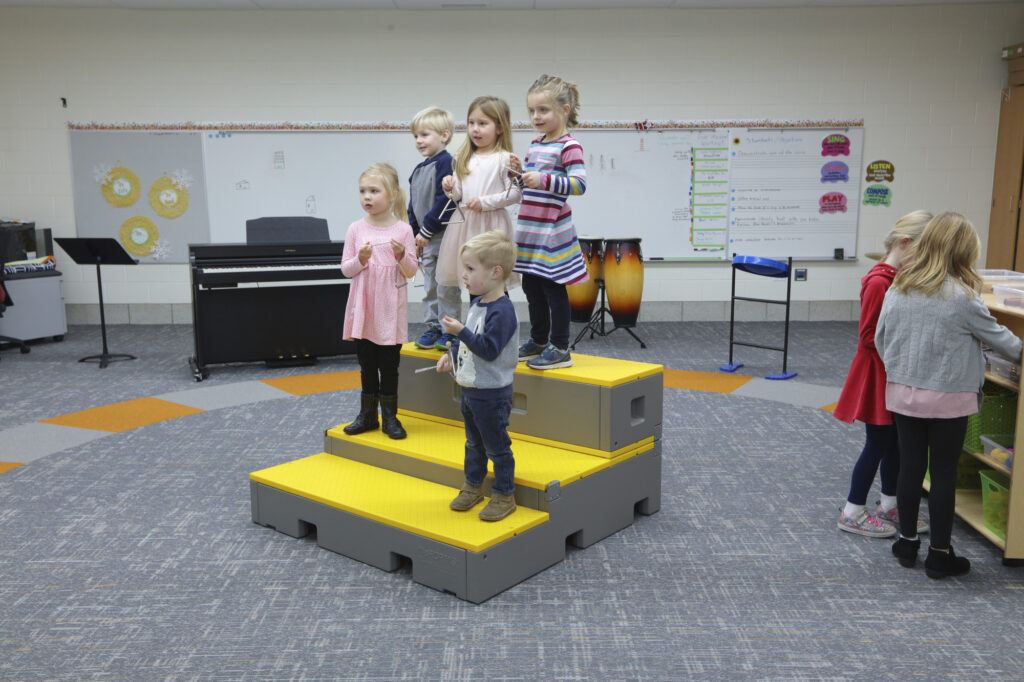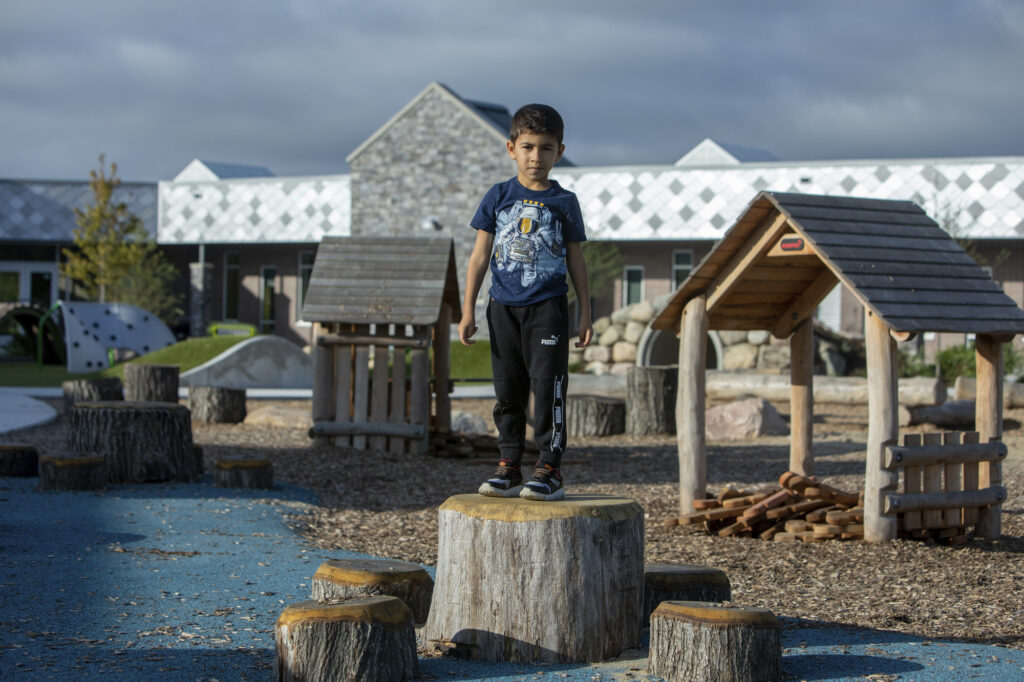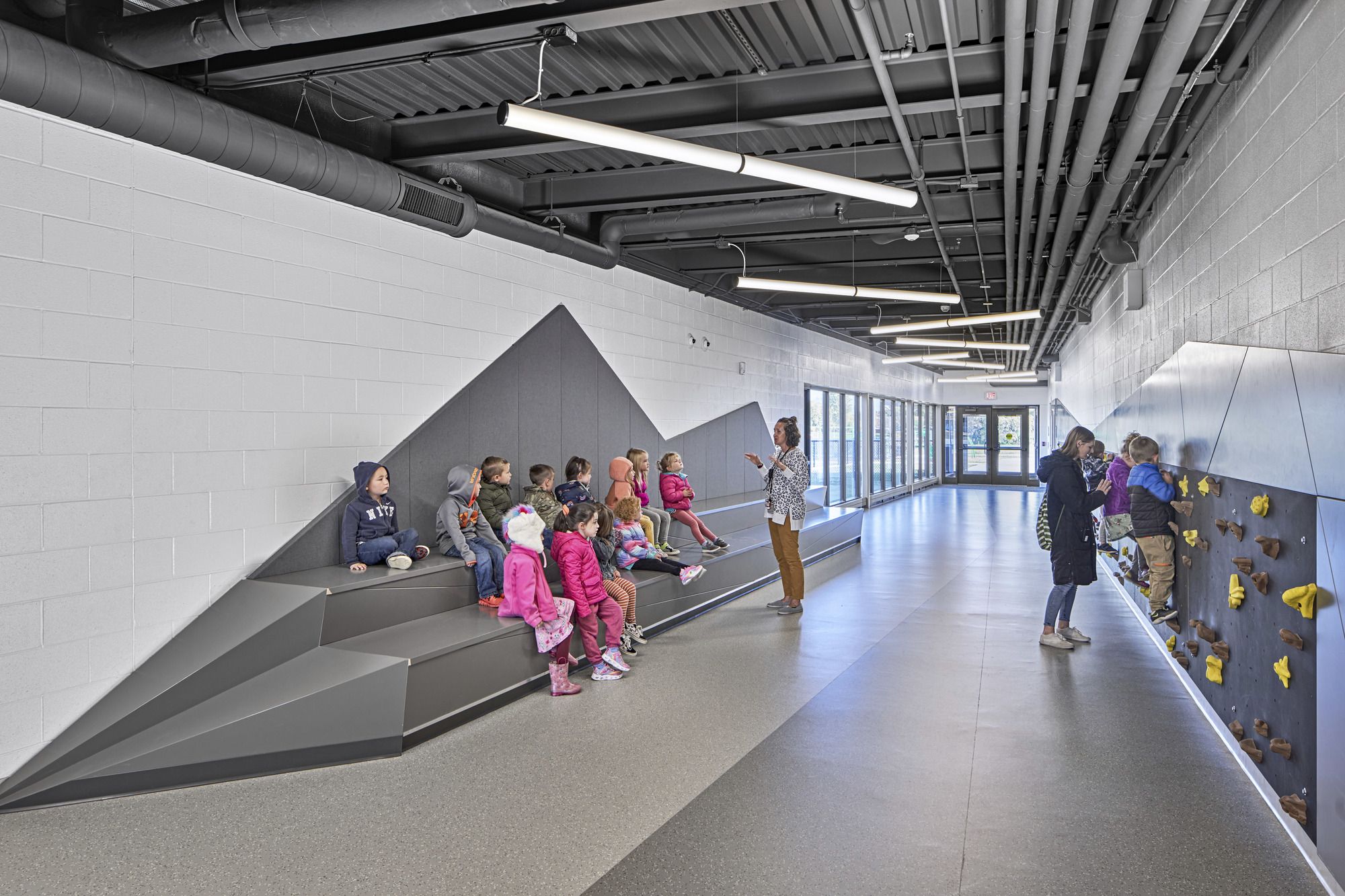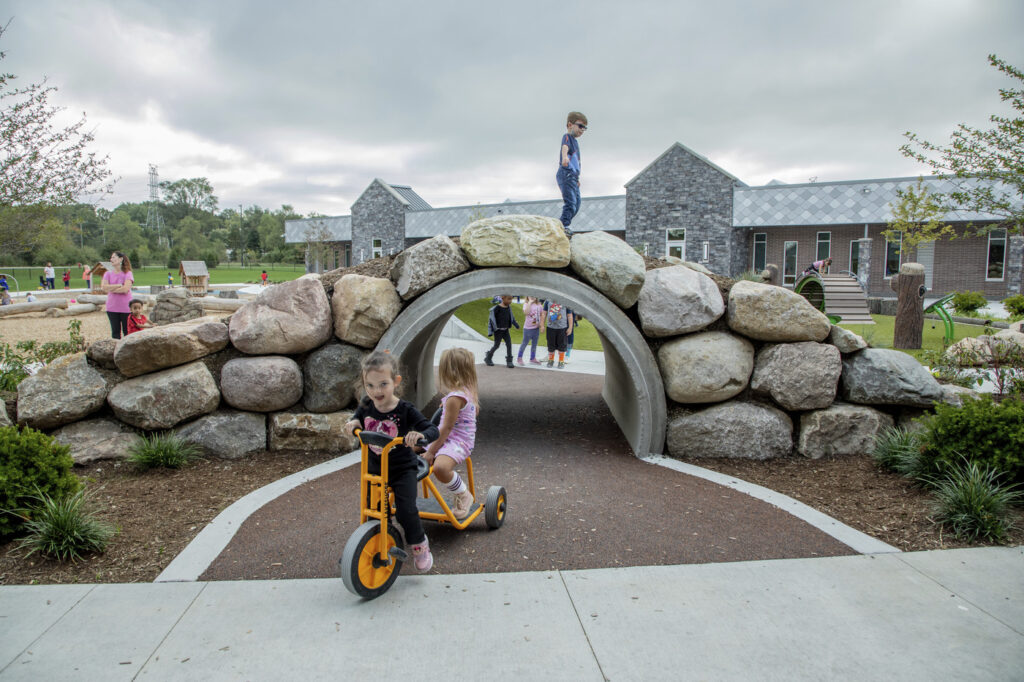The earliest years of life are a time of remarkable growth. In fact, more than 90% of a child’s brain development happens before the age of five. It’s a time when every experience matters and the environments in which those experiences take place matter even more.
Early childhood education programming has the potential to impact students long after they leave elementary school. Research consistently shows that investing in our earliest learners is not only an educational strategy but also a long-term economic strategy that has positive ripple effects across communities.
Meeting Families Where They Are
Early childhood centers (ECCs) that serve three- to five-year-olds can help districts address the childcare gap, positioning ECCs as both schools and solutions for working families. Full day preschool or half-days with wrap around care offer families the chance to integrate kids into the district earlier and can provide a single location for families with multi-age children. Across the U.S. there is growing momentum for access to free universal preschool and in Michigan, the state has set a goal of providing universal preschool for all four-year-olds by 2027.
Districts without a standalone ECC can still meet family needs with creative programming, such as offering “junior kindergarten” or “young fives” within elementary schools, providing an on-ramp for children not yet ready for traditional kindergarten. These models can provide age-appropriate learning experiences and make preschool more accessible for more students, especially in rural areas or geographically large districts where transportation may be a barrier.
Lifelong Impact of Early Education
Programming that emphasizes whole child development is critical for academic readiness, social-emotional learning, motor development, and reading proficiency. Creating positive experiences from a young age also helps build trust in the district early, encouraging long-term student retention and stronger family relationships with schools.
When looking at the long-term effects of early childhood education, the data is clear — investing early pays off. Studies have shown that:
- Attending early childhood education programs, like Head Start, correlate with higher graduation rates, increased lifetime earnings, and reduced reliance on subsidized services.
- These programs can reduce risky health behaviors and prolong the onset of chronic disease in adults.
- The benefits of universal Pre-K, including better educational and career outcomes, far exceed the short-term costs.
- Local communities also see results from Pre-K access as it helps parents remain in the workforce, raising household earnings, and strengthening local economies.
By positioning ECCs as both an educational investment and an economic development tool, districts can point to decades of positive outcomes for both students, their families, and communities.

Workforce and Staff Retention
The childcare challenge is not just about students — it affects the workforce at large. Access to resources and affordability directly impact parents’ ability to participate fully in the workforce. ECCs can serve as a workplace solution when districts establish early childhood education options to retain staff and support local families.
A recent Michigan Center for Data and Analytics report shows that preschool staff in Michigan typically earn more than childcare workers in private centers, making district-based ECCs a competitive employment option. But to sustain quality, it’s essential to invest in professional development, fair wages, and retention strategies for early educators.
Fewer school transitions are another retention strategy with student impact in mind. Especially for at-risk learners, minimizing moves between programs and schools provides greater stability and supports long-term academic success.
The Future Begins Here
When districts commit to providing early childhood education, they commit to long-term student success and stronger communities. Districts that invest intentionally in ECCs are creating opportunities beyond just early learning, they are creating a path to future readiness, equity, and prosperity.








